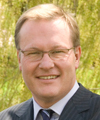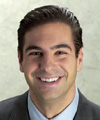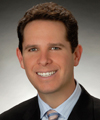02 June 2010
Timeshare lawyer, David Sudeck, organized a great panel of vacation ownership experts who met earlier this month to discuss developments and opportunities for profit within the vacation ownership industry. David Sudeck, a senior member of our Global Hospitality Group® who focuses on vacation ownership issues, writes extensively on issues in this area. (See the section of HotelLawBlog.com devoted to Timeshare …
Executive Summary:
- Timeshare is not recession proof, but the fundamentals remain strong!
- There are underserved areas where demand for vacation ownership is greater than current and planned supply.
- Hotel owners are using certain tools from the vacation ownership industry (e.g., sampler programs) to drive hotel occupancy through presold short term stays.
- Certain hotel properties may benefit from partial or complete conversion to timeshare or fractional use, but the property must be well-suited for a conversion. A failed hotel may just become a failed timeshare!
And here are the highlights from our experts:
 Howard C. Nusbaum
Howard C. Nusbaum
President
American Resort Development Association (ARDA)
1201 15th Street, NW, Suite 400
Washington, DC 20005
(202) 371-6700
hnusbaum@ARDA.org
Nusbaum: While timeshare sales were down for the 4th quarter of 2008 and early 2009, sales and financing are getting better. The issue for some smaller developers remains access to capital. Prices for timeshare interests have actually increased year over year, and fractional interest pricing has decreased only by 7%. Occupancy at timeshare resorts remains high, even during a recession due to the prepaid nature of the product and the overall high satisfaction of timeshare owners. Timeshare consumer loans tend to have lower defaults than other consumer loans; this is true in part because the average timeshare consumer is 47 yrs old, college educated, enjoys using his or her timeshare, and is unwilling to default on a small timeshare loan and hurt his or her credit. Also, lower cost “sampler” products are allowing today’s consumers who may not otherwise be familiar with the benefits of ownership to test drive timeshare products.
 Richard L. Ragatz
Richard L. Ragatz
President
Ragatz Associates
767 Willamette Street, Suite 307
Eugene, OR 97401
(541) 686-9335
richard.ragatz@ragatzassociates.com
Ragatz: Ragatz Associates has collected comprehensive data on the fractional industry and has completed a study identifying underserved markets (especially urban areas where demand exceeds supply even in today’s market). Richard educated the attendees regarding the differences between time shares, fractional product, private residence clubs, and destination clubs. He also discussed the critical physical components of fractional product and the types of hotel rooms and condominium units that are viable candidates for conversion. The average number of fractional interest units is 30, and typically a kitchen is required, but there is much more that goes into a successful fractional conversion.
 Bob McGrath
Bob McGrath
Vice President, North American Business Development
RCI
983 Roseberry Drive
Las Vegas, NV 89138
(702) 869-9924
bob.mcgrath@rci.com
McGrath: RCI doesn’t develop timeshares, it makes them better by offering flexible exchange options (including traditional, points-based and high-end whole ownership). Demand for timeshare is based in large part on the ability of timeshare owners to exchange their interests. RCI has collected valuable data, prepared by Ragatz Associates and from other analysts, relating to underserved markets, demographics and other key determinants for success.
 David Cox
David Cox
President
FNTC America Trust Company
91 North State Street, Suite b203
Concord, NH 03301
(866) 978-2571
david.cox@fntcamerica.com
Cox: Trust-based timeshare and fractional products are growing in popularity in the U.S. (they are already established in Europe) based on the industry’s desire for a more flexible and reliable structure. This structure can be used, for example, by hotel owners wishing to place only a portion of a hotel into a timeshare program for a limited number of years. The structure has been time-tested and is now familiar to state regulators.
 Jamie Klein
Jamie Klein
President & Chief Executive Officer
The Lore Institute
3824 Vista Blanca
San Clemente, CA 92672
(949) 492-9971
JamieKlein@loreinstitute.com
Klein: Permanent or interim conversion of hotel rooms to timeshare and fractionals may be a good way to monetize hotel rooms if they are not operating at higher than a 70% occupancy rate. Jamie helped convert two St. Regis hotel properties from under-occupied hotels to thriving vacation ownership properties. The marketing of the intervals helped drive occupancy, and the hotel’s transient occupancy guests were the ideal potential buyers of the intervals. The owners are great users of the property’s facilities, and the interval owners help subsidize operating and replacement costs. The hotel must be appropriate for conversion. Jamie is available to discuss what makes a good candidate. Lore Institute is available to conduct a Sales and Marketing Effectiveness Audit for vacation ownership projects. Lore recently enjoyed tremendous sales for an Oregon vacation ownership project after performing a full Audit on the property.
 Bob Waun
Bob Waun
Chief Executive Officer
Vacation Finance
255 East Brown Street, Suite 300
Birmingham, MI 48009
(248) 816-7241
waun@vacation-finance.com
Waun: Bob sees great opportunity for vacation ownership within the hotel sector, because many consumers who want to be a stakeholder in a hotel that they like and frequently. Over the last 10 years lenders have enjoyed above a 15% return on investment in the timeshare space. The consumer is looking at timeshare as a consumption product, and they value their ownership. This translates to lower defaults involving timeshare loans. There are opportunities for lenders willing to learn about the vacation ownership industry, but the lender needs to both understand and believe in mixed-use and an ownership component.
 David A. Sudeck
David A. Sudeck
Of Counsel, Global Hospitality Group®
Jeffer Mangels Butler & Marmaro LLP (JMBM)
1900 Avenue of the Stars, 7th Floor
Los Angeles, CA 90067
(310) 201-3518
dsudeck@JMBM.com
Sudeck: JMBM has several hotel clients that are exploring shorter term non-fee simple products so that they can weather the downturn without losing long-term control or ownership of their hotel inventory. We are also working on more traditional timeshare projects with foreign investors looking to capitalize on the bargain prices that we are currently seeing. JMBM is working closely with several of the panelists to meet our client’s objectives.
The mood was upbeat … cautious optimism. One thing was clear, our panelists know, live and breathe shared ownership, and we want to continue to work with professionals of their caliber as we help steer the industry toward its successful future.
Until then, this is Jim Butler, author of www.HotelLawBlog.com asking, “Who’s your hotel lawyer?”
________________________
Our Perspective. We represent hotel lenders, owners and investors. We have helped our clients find business and legal solutions for more than $125 billion of hotel transactions, involving more than 4,700 properties all over the world. For more information, please contact Jim Butler at jbutler@jmbm.com or 310.201.3526.
Jim Butler is a founding partner of JMBM and Chairman of its Global Hospitality Group®. Jim is one of the top hospitality attorneys in the world. GOOGLE “hotel lawyer” and you will see why.
JMBM’s troubled asset team has handled more than 1,000 receiverships and many complex insolvency issues. But Jim and his team are more than “just” great hotel lawyers. They are also hospitality consultants and business advisors. For example, they have developed some unique proprietary approaches to unlock value in underwater hotels that can benefit lenders, borrowers and investors. (GOOGLE “JMBM SAVE program”.)
Whether it is a troubled investment or new transaction, JMBM’s Global Hospitality Group® creates legal and business solutions for hotel owners and lenders. They are deal makers. They can help find the right operator or capital provider. They know who to call and how to reach them.



